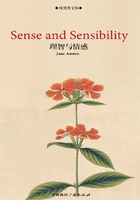But, in view of this wilful delusion of our minds, a delusion which it was so easy to dissipate and the effects of which must be so terrible, where is the excuse of Providence? Is it not true that grace failed man here? God, whom faith represents as a tender father and a prudent master, abandons us to the fatality of our incomplete conceptions; he digs the ditch under our feet; he causes us to move blindly: and then, at every fall, he punishes us as rascals.What do I say? It seems as if it were in spite of him that at last, covered with bruises from our journey, we recognize our road; as if we offended his glory in becoming more intelligent and free through the trials which he imposes upon us.What need, then, have we to continually invoke Divinity, and what have we to do with those satellites of a Providence which for sixty centuries, by the aid of a thousand religions, has deceived and misled us?
What! God, through his gospel-bearers and by the law which he has put in our hearts, commands us to love our neighbor as ourselves, to do to others as we wish to be done by, to render each his due, not to keep back anything from the laborer's hire, and not to lend at usury; he knows, moreover, that in us charity is lukewarm and conscience vacillating, and that the slightest pretext always seems to us a sufficient reason for exemption from the law: and yet he involves us, with such dispositions, in the contradictions of commerce and property, in which, by the necessity of the theory, charity and justice are bound to perish! Instead of enlightening our reason concerning the bearing of principles which impose themselves upon it with all the power of necessity, but whose consequences, adopted by egoism, are fatal to human fraternity, he places this abused reason at the service of our passion; by seduction of the mind, he destroys our equilibrium of conscience;
he justifies in our own eyes our usurpations and our avarice; he makes the separation of man from his fellow inevitable and legitimate; he creates division and hatred among us in rendering equality by labor and by right impossible; he makes us believe that this equality, the law of the world, is unjust among men; and then he proscribes us en masse for not having known how to practise his incomprehensible precepts! I believe I have proved, to be sure, that our abandonment by Providence does not justify us; but, whatever our crime, toward it we are not guilty; and if there is a being who, before ourselves and more than ourselves, is deserving of hell, --
I am bound to name him, -- it is God.
When the theists, in order to establish their dogma of Providence, cite the order of nature as a proof, although this argument is only a begging of the question, at least it cannot be said that it involves a contradiction, and that the fact cited bears witness against the hypothesis.In the system of the world, for instance, nothing betrays the smallest anomaly, the slightest lack of foresight, from which any prejudice whatever can be drawn against the idea of a supreme, intelligent, personal motor.In short, though the order of nature does not prove the reality of a Providence, it does not contradict it.
It is a very different thing with the government of humanity.Here order does not appear at the same time as matter; it was not created, as in the system of the world, once and for eternity.It is gradually developed according to an inevitable series of principles and consequences which the human being himself, the being to be ordered, must disengage spontaneously, by his own energy and at the solicitation of experience.No revelation regarding this is given him.Man is submitted at his origin to a preestablished necessity, to an absolute and irresistible order.That this order may be realized, man must discover it; that it may exist, he must have divined it.This labor of invention might be abridged; no one, either in heaven or on earth, will come to man's aid; no one will instruct him.Humanity, for hundreds of centuries, will devour its generations; it will exhaust itself in blood and mire, without the God whom it worships coming once to illuminate its reason and abridge its time of trial.Where is divine action here? Where is Providence?
"If God did not exist," -- it is Voltaire, the enemy of religions, who says so, -- "it would be necessary to invent him." Why? "Because," adds the same Voltaire, "if I were dealing with an atheist prince whose interest it might be to have me pounded in a mortar, I am very sure that I should be pounded." Strange aberration of a great mind! And if you were dealing with a pious prince, whose confessor, speaking in the name of God, should command that you be burned alive, would you not be very sure of being burned also? Do you forget, then, anti-Christ, the Inquisition, and the Saint Bartholomew, and the stakes of Vanini and Bruno, and the tortures of Galileo, and the martyrdom of so many free thinkers? Do not try to distinguish here between use and abuse: for I should reply to you that from a mystical and supernatural principle, from a principle which embraces everything, which explains everything, which justifies everything, such as the idea of God, all consequences are legitimate, and that the zeal of the believer is the sole judge of their propriety.
"I once believed," says Rousseau, "that it was possible to be an honest man and dispense with God; but I have recovered from that error." Fundamentally the same argument as that of Voltaire, the same justification of intolerance:
Man does good and abstains from evil only through consideration of a Providence which watches over him; a curse on those who deny its existence! And, to cap the climax of absurdity, the man who thus seeks for our virtue the sanction of a Divinity who rewards and punishes is the same man who teaches the native goodness of man as a religious dogma.
And for my part I say: The first duty of man, on becoming intelligent and free, is to continually hunt the idea of God out of his mind and conscience.















